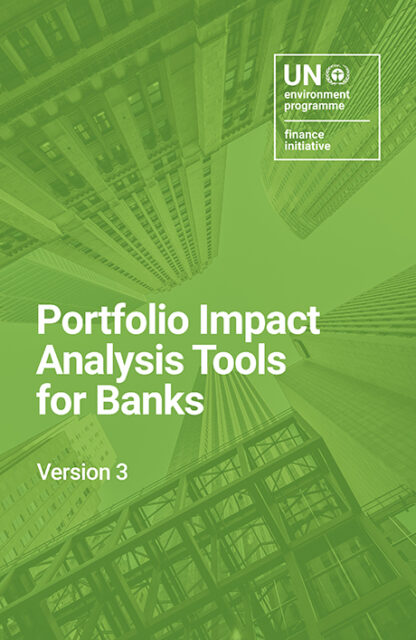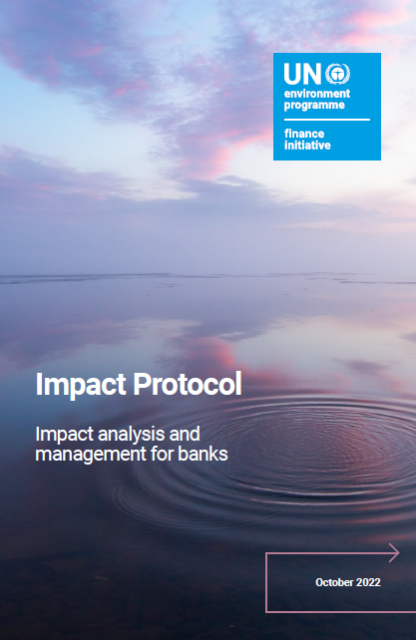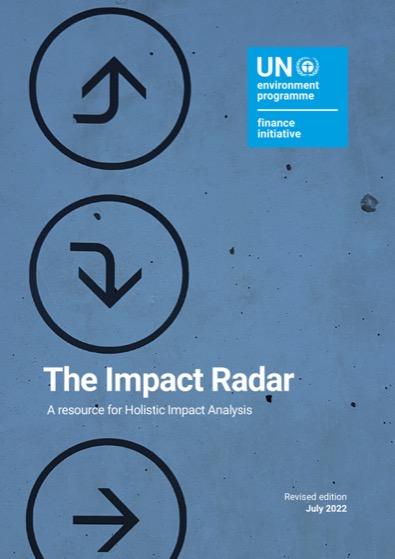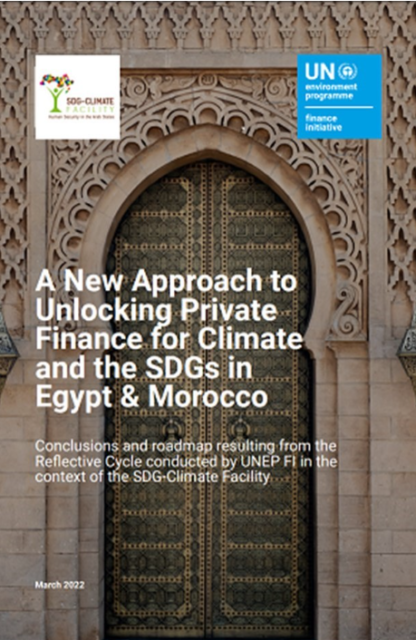About
Based on a unique and pioneering theory of impact, UNEP FI works with its members and peer sustainability initiatives to mainstream impact analysis and management in business and finance, as the cornerstone to closing the $2.5 trillion SDG funding gap.
Latest News
UNEP FI launches new and enhanced Interlinkages and Needs mappings to help financial institutions manage impacts
UNEP FI has launched the new and enhanced Interlinkages Mapping and the 2024 edition of the Needs Mapping, as part of a comprehensive suite of resources designed to ...
Read moreUNEP FI launches new resources to support CSRD implementation by leveraging Principles for Responsible Banking requirements
UNEP FI has launched an ESRS Interoperability Package which helps banks leverage the close alignment between the Corporate Sustainability Reporting Directive (CSRD) and the Principles for Responsible Banking (PRB), using ...
Read moreUNEP FI’s work on SDGs and Impact
UNEP FI’s work on SDGs is anchored in the idea that the SDG financing gap is first and foremost a business model gap. For most current business models, positive and negative impacts to people, planet and the economy are externalities and are therefore considered as a cost centre. By adopting a holistic approach, an as-yet unexplored potential for positive impacts to generate revenues can be unlocked. New, impact-based business models can significantly decrease the cost of achieving the SDGs and give rise to business and financing solutions at scale, including in emerging and developing economies, where needs are most acute. Find out more by reading “Rethinking Impact to Finance the SDGs” here. Since UNEP FI coined the term impact management, it has been at the forefront of developing a comprehensive framework that has since gained widespread adoption across various sectors. This pioneering work has not only shaped the understanding of impact management but also established it as a critical discipline for organisations aiming to align their operations with sustainable development goals. The UNEP FI Holistic Impact Analysis approach was first explored in the Principles for Positive Impact Finance (2017), followed by the issuance of the Impact Radar and a set of Model Frameworks, applicable at the individual transaction level. It has since been embedded into the heart of UNEP FI’s core frameworks, namely the Principles for Responsible Banking (PRB). To operationalise this, and to support UNEP FI’s member banks who have committed to managing the impacts of their portfolios as part of their PRB commitments, UNEP FI has developed the Impact Protocol for Banks, supported by an increasingly comprehensive suite of Tools and Resources for Holistic Impact Management. Furthermore, UNEP FI promotes interoperability with leading sustainability reporting frameworks such as the Corporate Sustainability Reporting Directive (CSRD), leveraging their close alignment regarding impact materiality requirements. Achieving the Sustainable Development Goals requires all market participants to understand and improve their sustainability impacts. Coherent standards and guidance across the broader spectrum of public and private economic players is therefore essential. For this reason, UNEP FI has been a founding Co-Chair and participant of the Impact Management Platform (IMP), a collaboration between leading providers of public good standards, frameworks, tools, and guidance for managing sustainability impacts. Through the Platform, participating organisations work together to identify opportunities to consolidate existing sustainability resources, collectively address gaps, and coordinate with policymakers and regulators to support the mainstreaming of impact management. Find out more about the Platform here.
Find out more about our tools for impact management in our flyer.








